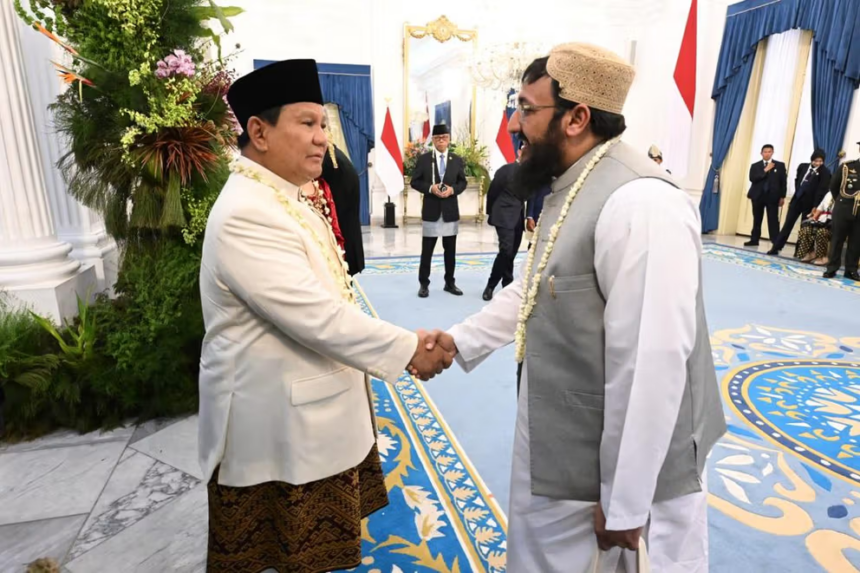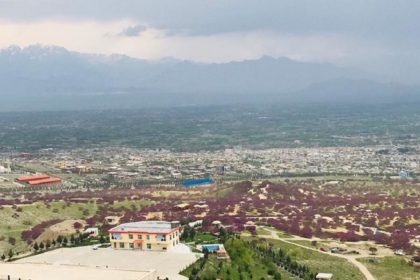RASC News Agency: In what appears to be another attempt to project diplomatic legitimacy abroad, the Taliban have announced the appointment of Mawlawi Saadullah Baloch as the acting head of their mission in Jakarta. The Taliban’s self-styled embassy confirmed that Baloch represented the group at Indonesia’s 80th Independence Day celebrations, where he publicly congratulated President Joko Widodo on behalf of the regime. But beneath this carefully staged performance of diplomacy lies a troubling reality: Saadullah Baloch is not a neutral bureaucrat but an individual with deep-rooted ties to terrorism. Sources in Kabul have revealed that Baloch was once a member of al-Qaeda and maintained direct links with its leadership, including Ayman al-Zawahiri, the late successor to Osama bin Laden.
Before being dispatched to Indonesia, Baloch served as head of border affairs in the Taliban’s so-called Ministry of Foreign Affairs. In June 2022, he led a Taliban delegation to Tehran for high-level border negotiations with Iran. Intelligence reports suggest that during this trip, he secretly met with senior al-Qaeda operatives residing in Iran yet another indication of the Taliban’s continuing collusion with terrorist networks under the guise of diplomacy. Although Indonesia does not formally recognize the Taliban regime, the Afghanistani embassy in Jakarta has in practice been handed over to the group. This quiet concession illustrates the dangerous paradox of international engagement: while governments refuse official recognition, they simultaneously enable the Taliban to operate as though they were a legitimate state authority.
The installation of a figure like Saadullah Baloch is far more than an internal staffing decision. It signals the Taliban’s enduring role as a central pillar in the architecture of global jihadist militancy. For years, Taliban cadres have overlapped with al-Qaeda networks not merely through tactical cooperation but through ideological kinship and organizational grooming. Many Taliban leaders were either members of al-Qaeda or trained within its operational frameworks. At the ideological core of this partnership lies the doctrine of “borderless jihad.” This transnational vision rejects geography, sovereignty, and the nation-state itself, instead advocating for a global battlefield in which every opponent of their rigid ideology is a legitimate target. From the Taliban of Afghanistan to Pakistan’s Tehrik-i-Taliban (TTP), and from al-Qaeda to other militant offshoots, the strategic alignment is clear: a rejection of borders in pursuit of a theocratic empire built upon the harshest interpretation of Sharia law.
Even as the Taliban scramble to present themselves as a conventional government seeking international legitimacy, their appointments and alliances betray a starkly different reality. Their ultimate project is not state-building but the expansion of a militant umma a borderless Islamic community governed by extremist dogma. TTP functions as the Taliban’s ideological twin across the Durand Line, and together with al-Qaeda, they continue to nourish a single militant ecosystem. The Durand Line, political boundaries, and even international diplomacy have proven powerless in dividing these networks. From the valleys of Kunar and Paktika to the tribal belt of Waziristan, and now extending as far as Jakarta, their operatives function as agents of the same cause: a global jihad that refuses to acknowledge state sovereignty or political legitimacy.
The Taliban’s appointment of Saadullah Baloch in Indonesia is not a diplomatic footnote but a dangerous revelation. It demonstrates that beneath the Taliban’s polished attempts at statecraft, they remain welded to the same ideological bloodstream as al-Qaeda and TTP. Their identity is not that of a legitimate government but of a militant movement cloaked in the garments of diplomacy. At its core, the Taliban’s foreign policy is inseparable from the doctrine of jihad without borders. This principle is not only their ideological compass but also their operational lifeline. Far from being a step toward moderation, the Jakarta appointment is a chilling reminder that the Taliban continue to breathe, act, and expand within a single extremist ecosystem one that rejects peace, undermines sovereignty, and threatens global security.






